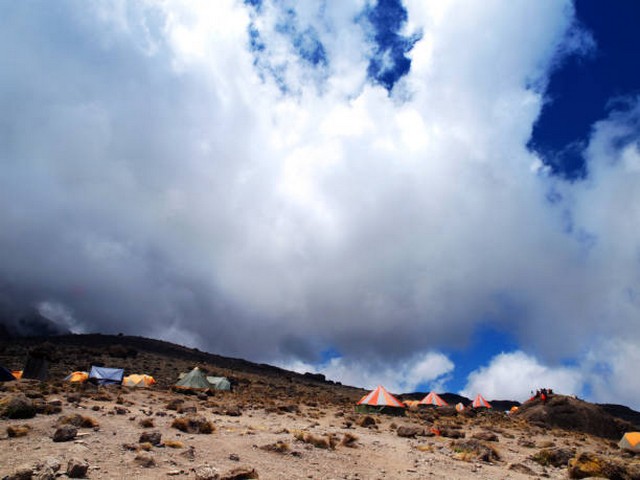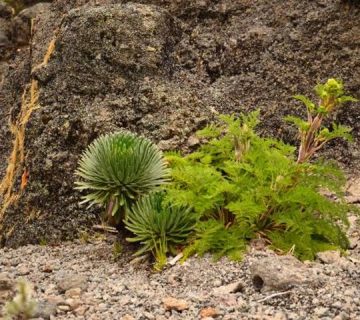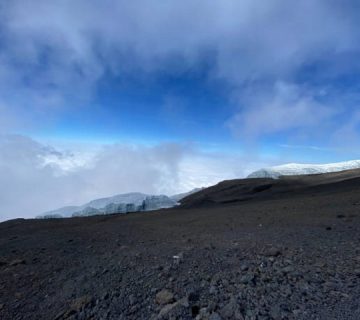Essential Health Tips for Climbing Kilimanjaro
As you set your sights on the majestic peak of Mount Kilimanjaro, you’re not just planning a trek; you’re embarking on a journey of transformation. At the Kilimanjaro Centre for Trekking and Ecotourism (KCTE), we believe that preparing for this journey is as crucial as the climb itself. That’s why we’ve compiled these invaluable health tips to ensure you’re not only ready but also inspired to conquer the highest free-standing mountain in the world.
Preparing Your Body and Mind
Start with Cardiovascular Fitness
Climbing Kilimanjaro is a feat that demands excellent cardiovascular health. Begin your training with activities that increase your heart rate and build endurance. Hiking, jogging, cycling, and swimming are excellent pre-climb workouts. Aim to start your training at least six months before your climb to gradually increase your stamina.
Strength Training
While cardiovascular health is crucial, strength training shouldn’t be overlooked. Focus on building the muscle groups that will be most engaged during your climb — legs, core, and back. Exercises like squats, lunges, planks, and deadlifts will enhance your muscle strength and improve your overall stability.
Altitude Acclimatization
Mount Kilimanjaro’s peak, Uhuru Point, stands at a staggering 5,895 meters (19,341 feet) above sea level. Acclimatizing to such altitude is vital. If possible, train on higher elevations part of your preparation. Alternatively, you can use stair climbing and simulate altitude training with specialized equipment.
Mental Preparation
The journey to Kilimanjaro’s summit is as much a mental challenge as a physical one. Engage in activities that enhance mental toughness, like meditation or yoga. These practices not only improve focus but also help in managing stress and anxiety, which are common in high-altitude adventures.
Nutrition and Hydration
Balanced Diet
Embarking on a nutrition plan that supports energy levels and overall health is essential. Focus on a balanced diet rich in carbohydrates, proteins, and healthy fats. Carbohydrates are your main energy source, while proteins will aid in muscle repair and recovery. Don’t forget to include plenty of fruits and vegetables to replenish vitamins and minerals.
Hydration is Key
Hydration is crucial on Kilimanjaro. The altitude can dehydrate you faster than at sea level. Aim to drink at least 3-4 liters of water daily during your climb. Start hydrating weeks before your expedition to ensure you’re well-hydrated before beginning your trek.
Supplements
Consider supplements such as iron, which helps in oxygen transportation in your body, especially useful at high altitudes. However, consult with a healthcare provider before starting any supplement regimen.
Health Checks and Travel Insurance
Consult Your Doctor
Before undertaking the climb, get a full medical check-up to assess your fitness level and any underlying health issues. Discuss vaccinations required for Tanzania and preventive medications for altitude sickness.
Invest in Travel Insurance
Ensure your travel insurance covers high-altitude trekking. Check for features like emergency evacuation and hospital stays, which are crucial for remote areas like Kilimanjaro.
Gear and Clothing
Dress in Layers
Temperatures on Kilimanjaro can range from very hot to below freezing. Dressing in layers allows you to adjust your clothing to maintain comfort and prevent hypothermia.
Footwear
Invest in high-quality, durable, and waterproof hiking boots. Make sure to break them in well before your climb to avoid blisters.
Protective Gear
Don’t forget sunglasses, sunscreen, and a hat to protect against sun exposure. Also, pack a sturdy backpack and consider using trekking poles to aid your climb.
On the Mountain
Pace Yourself
"Pole Pole" (slowly, slowly in Swahili) is the mantra on Kilimanjaro. Maintaining a slow and steady pace will help your body adjust to the altitude and increase your chances of reaching the summit.
Listen to Your Body
Monitor how you feel. Altitude sickness can affect anyone, regardless of fitness level. Symptoms include headache, nausea, and dizziness. If you feel unwell, inform your guide immediately.
Enjoy Every Moment
Remember, climbing Kilimanjaro is not just about reaching the summit; it’s about enjoying the journey. Take time to soak in the landscapes, appreciate the quiet moments at camp, and celebrate the camaraderie with your fellow climbers and guides.
Why Climb with Kilimanjaro Centre For Trekking and Ecotourism (KCTE)?
At KCTE, we are dedicated to providing you with a memorable and safe climbing experience. Our expert guides are trained to handle every aspect of your health and safety on the mountain. We believe that a well-prepared climber is a successful climber, and we strive to ensure that all our guests are fully prepared and informed before they set foot on Kilimanjaro.
FAQ
Q: How fit do I need to be to climb Kilimanjaro?
A: You need to be in good physical health and have a reasonable level of fitness. Start preparing months in advance to build endurance and strength.
Q: What is the best time to climb Kilimanjaro?
A: The best times are during the dry seasons: January to mid-March and June to October.
Q: Can I climb Kilimanjaro if I have a medical condition?
A: Many people with controlled medical conditions can successfully climb Kilimanjaro. However, always consult with your doctor before planning the trek.
Q: What should I eat during the climb?
A: Opt for energy-rich foods such as nuts, oats, fruits, and energy bars. KCTE provides balanced meals to sustain your energy throughout the climb.
Q: How can I prevent altitude sickness?
A: Acclimatize properly, stay hydrated, ascend slowly, and consult your doctor about medications that can help.
Embark on your journey to conquer Kilimanjaro with confidence. With the right preparation and the expert guidance from KCTE, you are set not just to reach the summit, but to experience a profound personal triumph. Ready to start your adventure? Contact us today at Kilimanjaro Centre for Trekking and Ecotourism (KCTE), and let’s make your dream climb a reality!




